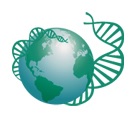Handwashing is one of the most important means of preventing the spread of infection.
--US Centers for Disease Control & Prevention
Handwashing--rubbing your hands together with soap and water--reduces the spread of germs from one person to the next. According to the US Centers for Disease Control and Prevention, handwashing is one of the most important means of preventing the spread of infection.
If you track when you wash your hands you may find it is not as often as you think. A recent survey found that 94% of Americans say that they always wash their hands after going to the bathroom but observations in public restrooms show that only 68% of adults did so.
Why should you wash?
Germs are so small that you cannot see them. A few of them can cause illnesses like diarrhea and colds as well as more serious, and life-threatening, diseases.
Washing your hands correctly, greatly reduces the chances of spreading germs. Disease-causing germs can enter your body when your unwashed hands touch your nose, mouth, and open wounds. Some of those germs may have changed to protect themselves against an antibiotic, which is called antibiotic resistance.
While your health care providers have a professional responsibility to wash their hands, it is important that everyone make handwashing a personal priority.
When should you wash?
Before you...
- Prepare or eat food
- Treat a cut or wound or tend to someone who is sick
- Insert or remove contact lenses
After you...
- Use the bathroom
- Handle uncooked foods, particularly raw meat, poultry or fish
- Change a diaper
- Blow your nose, cough or sneeze
- Play with or touch a pet, especially reptiles and exotic animals
- Handle garbage
- Tend to someone who is sick or injured
How should you wash?
How you wash your hands is just as important as when you wash them, especially when it comes to eliminating germs. Just rinsing them quickly is not enough. When you wash your hands:
- Use soap and warm, running water
- Wash all surfaces thoroughly, including wrists, palms, back of hands, fingers and under the fingernails
- Rub hands together for at least 10-15 seconds
- When drying, use a clean or disposable towel if possible, and pat your skin rather than rubbing to avoid chapping and cracking
- Apply hand lotion after washing to soothe your skin and help prevent drying
This health education material was reviewed favorably by the American Academy of Family Physicians and the Association for Professionals in Infection Control and Epidemiology. We thank the American Society for Microbiology and Bayer Pharmaceuticals for the use of these educational materials.
